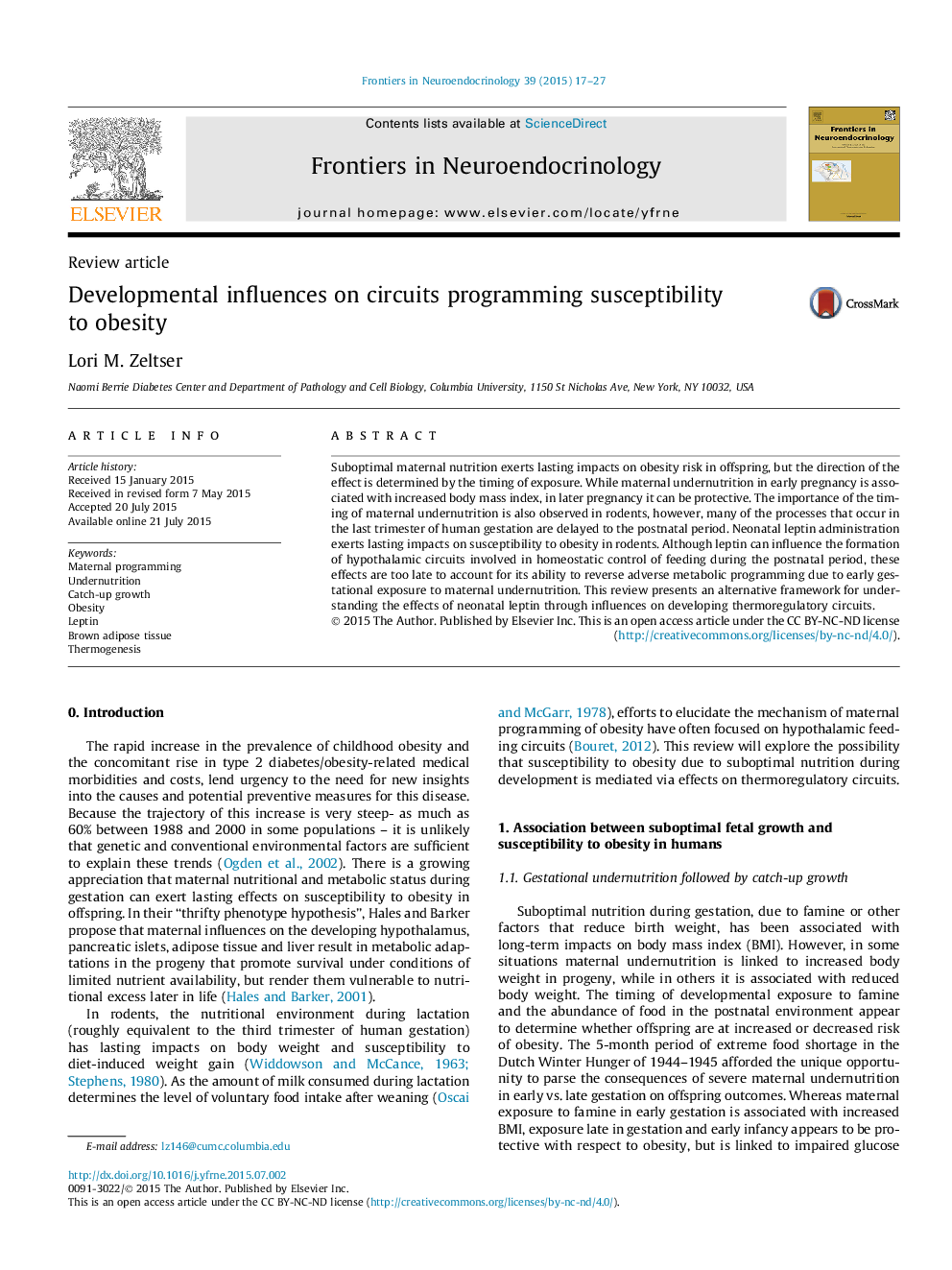| Article ID | Journal | Published Year | Pages | File Type |
|---|---|---|---|---|
| 5900630 | Frontiers in Neuroendocrinology | 2015 | 11 Pages |
â¢Timing of exposure to maternal undernutrition programs susceptibility to obesity.â¢Neonatal leptin programs susceptibility to diet-induced weight gain in rodents.â¢Leptin's effects on hypothalamic neurons are too late to impact this process.â¢Neonatal leptin impacts brown adipose structure and function.â¢Influences on thermoregulatory circuits could program obesity susceptibility.
Suboptimal maternal nutrition exerts lasting impacts on obesity risk in offspring, but the direction of the effect is determined by the timing of exposure. While maternal undernutrition in early pregnancy is associated with increased body mass index, in later pregnancy it can be protective. The importance of the timing of maternal undernutrition is also observed in rodents, however, many of the processes that occur in the last trimester of human gestation are delayed to the postnatal period. Neonatal leptin administration exerts lasting impacts on susceptibility to obesity in rodents. Although leptin can influence the formation of hypothalamic circuits involved in homeostatic control of feeding during the postnatal period, these effects are too late to account for its ability to reverse adverse metabolic programming due to early gestational exposure to maternal undernutrition. This review presents an alternative framework for understanding the effects of neonatal leptin through influences on developing thermoregulatory circuits.
